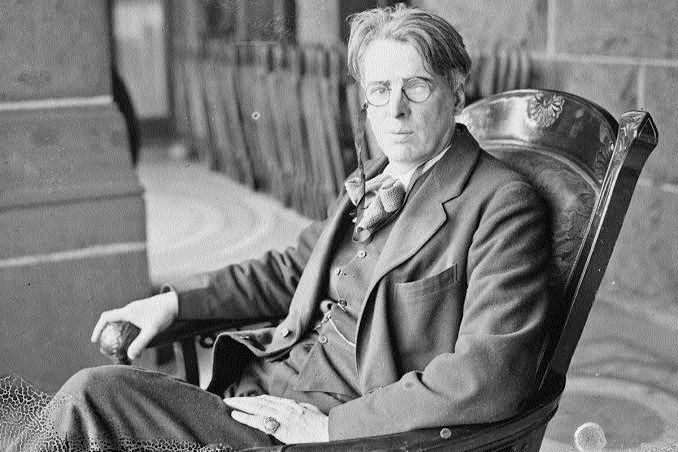Of the quarrel within
| Date :09-Nov-2021 |

William Butler Yeats
By Vijay Phanshikar :
“We make out of the quarrel with others, rhetoric, but of the quarrel with ourselves, poetry.”
- William Butler Yeats,
Irish Nobel Prize winner,
dramatist, and poet,
in Anima Hominis, in 1917
Regarded as a leader of Irish literary revival, Yeats offers one more assessment of what he thinks of poetry. As a romantic and modernist, Yeats’ poetry is wide-ranging, with a mystical awareness peeping through more than occasionally. When there is tumult -- of any kind -- within, poetry emerges in thought, which some may capture in words and get called poets. However, the process is not all that easy, all that simple. The poet is special -- different from other creators of other forms of literature. There may be a poetic touch even in prose or different forms. Yet, poetry is not that. W.B. Yeats’ definition of poetry stems from an experience more profound than the common tumult that creators of other forms of literature may feel. Emotions swirl around almost in conflict with one another. Thoughts criss-cross one another’s paths -- as if there is a quarrel among differing entities.
‘Rhetoric’ is the word Yeats uses for the cacophony of quarrel. But the same process within is ‘poetry’, in Yeats’ definition. Through the initial dissonance of emotions possibly militating for space and projection in the mind appears what can be called resonance of an idea in poetic form. W.B. Yeats was more than a dramatist and poet. He led from the front the rise of literary movement of his country, in the process becoming a global legend. Larger society of his time believed that what Yeats thought today, the world did it later. The legendary T.S. Eliot captured the phenomenon called Yeats “one of those few whose history is the history of their own time, who are part of the consciousness of an age which cannot be understood without them”.
What a tribute! His poetry had all the virtues that masters assign to the form -- lyricism, lilt, linguistic depth, transparency, sentimentality, mysticism, romanticism, modernism ...! Yeats himself described his own three-dimensional power of expression in If I were Four-and-Twenty, in 1919: “I had three interests: interest in a form of literature, in a form of philosophy, and a belief in nationality... Now all three are, I think, one, other rather all three a discrete expression of a single conviction.” In other words, multiple facets combine to make possible literary expression -- in any form -- which Yeats calls “a single conviction”. In still other words, Yeats meant to say, in effect, that literature -- poetry in particular -- stems from is the product of the whole of a being. That is perhaps why literature adds a unique wholesomeness to the larger and all-encompassing entity called society.